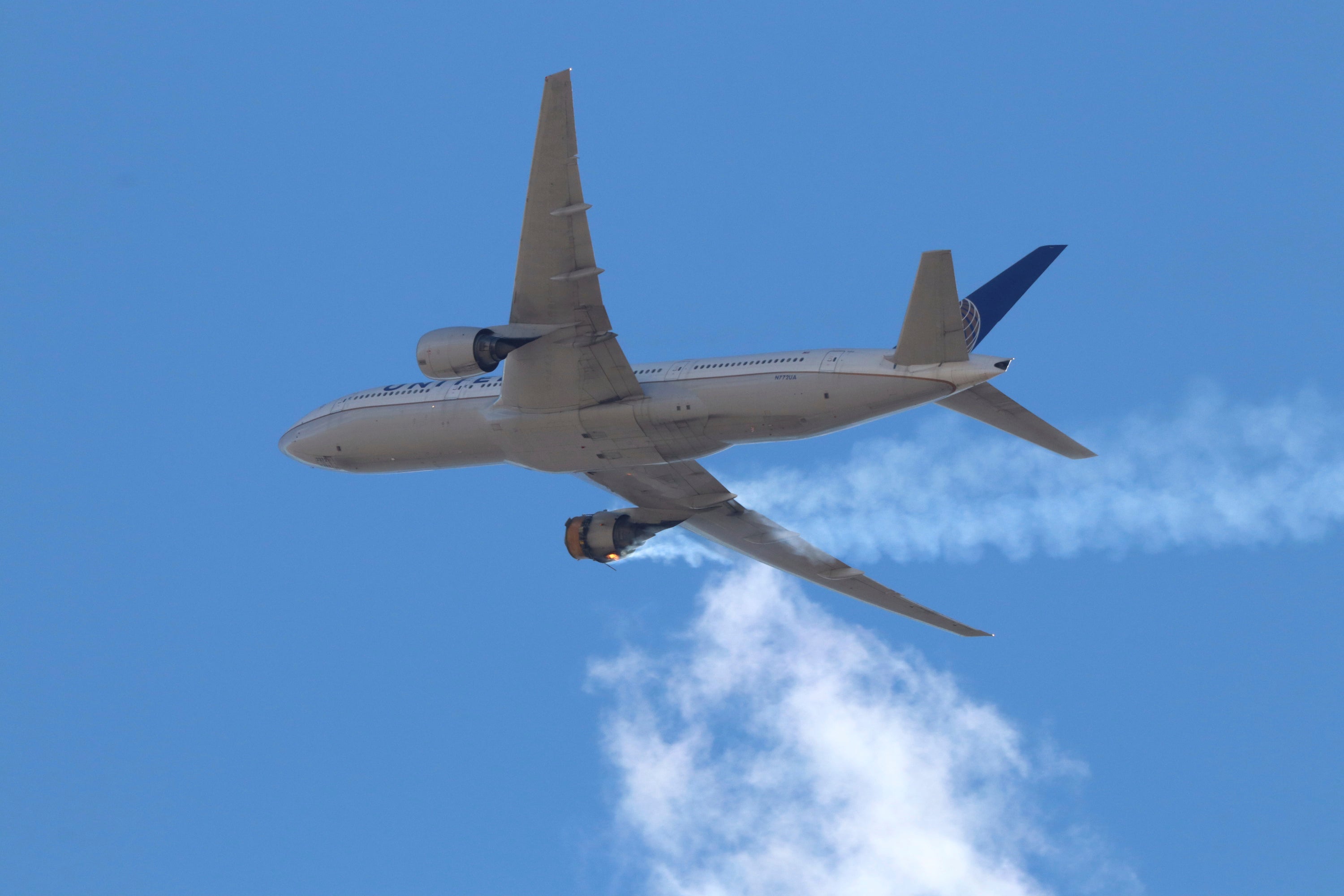FAA orders United to inspect Boeing 777s after emergency
Federal aviation regulators are ordering United Airlines to step up inspections of all Boeing 777s equipped with the type of engine that suffered a catastrophic failure over Denver Saturday

Your support helps us to tell the story
From reproductive rights to climate change to Big Tech, The Independent is on the ground when the story is developing. Whether it's investigating the financials of Elon Musk's pro-Trump PAC or producing our latest documentary, 'The A Word', which shines a light on the American women fighting for reproductive rights, we know how important it is to parse out the facts from the messaging.
At such a critical moment in US history, we need reporters on the ground. Your donation allows us to keep sending journalists to speak to both sides of the story.
The Independent is trusted by Americans across the entire political spectrum. And unlike many other quality news outlets, we choose not to lock Americans out of our reporting and analysis with paywalls. We believe quality journalism should be available to everyone, paid for by those who can afford it.
Your support makes all the difference.Federal aviation regulators have ordered United Airlines to step up inspections of all Boeing 777s equipped with the type of engine that suffered a catastrophic failure over Denver on Saturday.
United said it is temporarily removing those aircraft from service, as meanwhile Boeing recommended grounding aircraft with that model engine until the Federal Aviation. Pratty & Whitney, maker of the engine, said it was sending a team to work with investigators while coordinating with airlines and regulators.
The announcements come a day after United Airlines Flight 328 had to make an emergency landing at Denver International Airport after its right engine blew apart just after takeoff. Pieces of the casing of the engine, a Pratt & Whitney PW4000, rained down on suburban neighborhoods.
The plane with 231 passengers and 10 crew on board landed safely, and nobody aboard or on the ground was reported hurt, authorities said.
The Federal Aviation Administration FAA Administrator Steve Dickson said in a statement Sunday that based on an initial review of safety data, inspectors “concluded that the inspection interval should be stepped up for the hollow fan blades that are unique to this model of engine, used solely on Boeing 777 airplanes.”
Boeing said it supported decisions by the Japan Civil Aviation Bureau and FAA to suspend operations of all 777 aircraft powered by Pratt & Whitney 4000-112 engines. It said there were 69 of the engines in service and another 59 in storage.
“We are working with these regulators as they take actions while these planes are on the ground and further inspections are conducted by Pratt & Whitney," it said in a statement issued Sunday.
The National Transportation Safety Board said that two of the engine's fan blades were fractured and the remainder of the fan blades “exhibited damage.” The NTSB did caution that it was too early to draw conclusions about how the incident happened.
Video posted on Twitter showed the engine fully engulfed in flames as the plane flew through the air. Freeze frames from different video taken by a passenger sitting slightly in front of the engine and posted on Twitter appeared to show a broken fan blade in the engine.
United is the only U.S. airline with the Pratt & Whitney PW4000 in its fleet, the FAA said. United says it currently has 24 of the 777s in service.
United says it will work closely with the FAA and the NTSB “to determine any additional steps that are needed to ensure these aircraft meet our rigorous safety standards and can return to service.”
Pratt & Whitney said it was “actively coordinating with operators and regulators" to support revised inspections of the engines.
The NTSB said the cockpit voice recorder and flight data recorder were transported to its lab in Washington for the data to be downloaded and analyzed. NTSB investigations can take up to a year or longer, although in major cases the agency generally releases some investigative material midway through the process.
Japan Airways and All Nippon Airways decided to stop operating a combined 32 planes with that engine, according to the financial newspaper Nikkei.
Nikkei reported that Japan’s Ministry of Land, Infrastructure, Transport and Tourism also ordered the planes out of service, and the ministry said an engine in the same PW4000 family suffered unspecified trouble on a JAL 777 flying to Haneda from Naha on Dec. 4. It ordered stricter inspections in response.